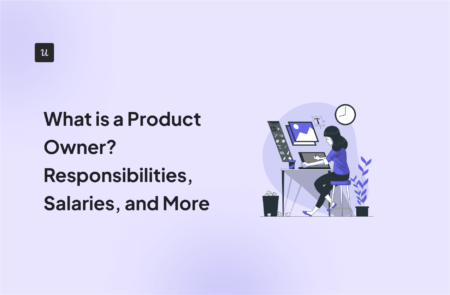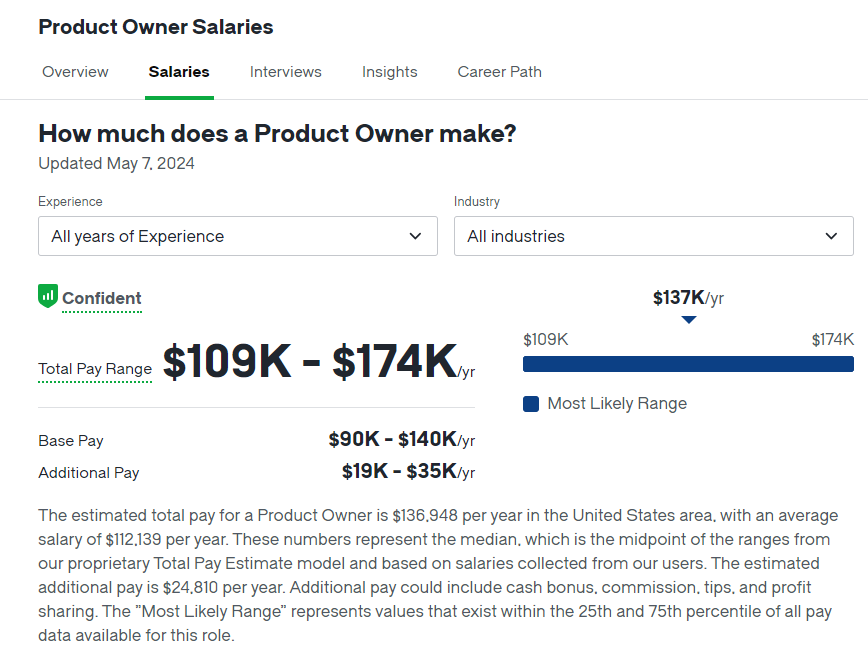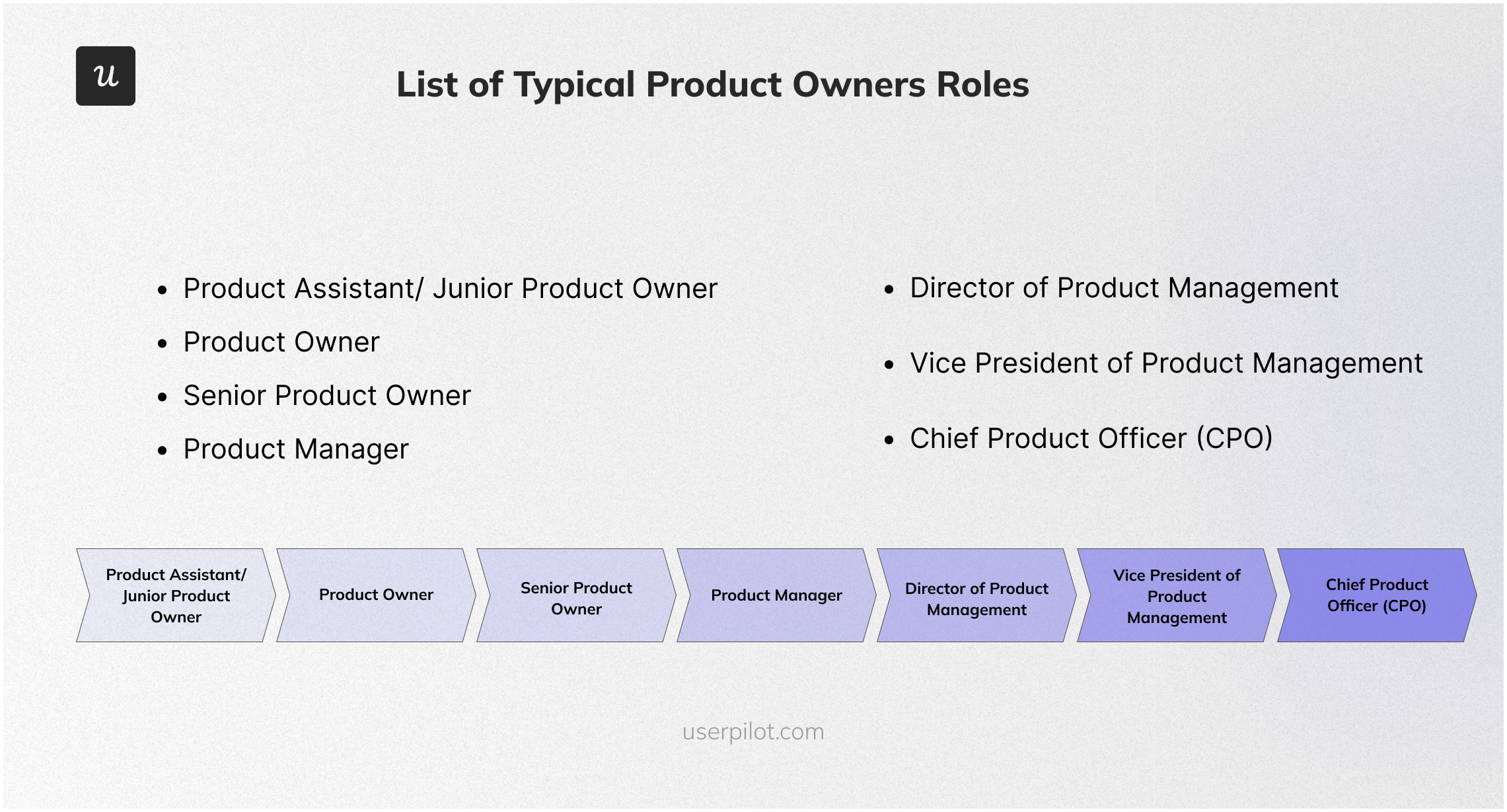
Whether you’re a seasoned professional or new to the field, understanding the nuances of product owners is essential for success.
In this guide, we’ll delve into the core responsibilities, salary insights, essential skills, and more, providing you with the knowledge and tools you need to excel as a product owner.
Try Userpilot Now
See Why 1,000+ Teams Choose Userpilot

What is a product owner?
In SaaS companies, a product owner is responsible for developing the product’s vision and navigating the product roadmap to maximize value. This means defining goals to be achieved so that everyone, from the development team to the customers, is on the same page about the product’s future. The product owner is also often referred to as the voice of the customer (VOC) on the Scrum team.
The role also calls for tactical expertise. The product owner not only has to communicate the tasks to be done but also organize sprints and coordinate teamwork until the final product is delivered.
What does a product owner do?
To stay on top of their key role of developing and managing the product, a product owner has to juggle several responsibilities constantly.
The role involves gaining a deeper understanding of the customer and their issues, either through direct communication or by analyzing feedback and tracking user journeys. All this helps identify pain points to help better guide product development.
Drawing from all these insights, the next critical responsibility is to create user stories, and then prioritize which ones to focus on when organizing sprints. The job doesn’t end with sprints though. Product owners need to oversee release management and quality assurance, all the while monitoring important metrics to gauge product performance.
Product owner’s main responsibilities
There are multiple facets of product development that the product owner needs to constantly keep an eye on. These vary from customer understanding to release management to tracking product performance, all the while collaborating across teams as well.
Here are all the main responsibilities that every product owner has to fulfill:
- Define a clear product vision and strategy, aligned with the overall goals of the organization.
- Maintain the product backlog so it is up-to-date and contains detailed user stories and well-documented acceptance criteria.
- Regularly plan and coordinate sprints, closely collaborating with customers and the development team to prioritize requirements based on customer needs and resources utilized.
- Work with cross-functional teams, including customer support, design, and marketing, to ensure everyone is on the same page for a smooth release.
- Gather and analyze customer feedback, track product usage, and perform relevant analysis, like funnel or path analysis, for examining problem areas to inform product decisions.
- Oversee the release process to ensure quality guidelines are met and to optimally schedule new features or updates.
- Monitor product performance by regularly tracking metrics such as user engagement, retention and conversion rates, and customer satisfaction to measure product success.
Product owner salary
According to Glassdoor, the average product owner salary across the United States is $137,000. However, this salary varies greatly depending on, first and foremost, your level of experience.
Here’s a look at what you can expect to earn depending on how much experience you have:
- Early-level product owner (1 to 3 years): $108,000/year
- Mid-level product owner (4 to 6 years): $119,000/year
- Senior product owner (8+ years): $132,000/year
- Experienced product owner (15+ years): $157,000/year
All these numbers are averages, and depending on the company, you can earn additional bonuses and performance-based rewards on top of this base salary.
After experience, another important factor that has a big impact on salary is the location. Since more companies, especially SaaS companies, are employing a geographically dispersed workforce, it is now common for companies to offer a location-based salary.
Here are the average product owner salaries in the following big cities of the US, according to Glassdoor:
- San Francisco: $140,073/year
- New York: $126,380/year
- Washington, DC: $123,885/year
- Boston: $121,013/year
- Chicago: $114,800/year
Apart from experience and location, there are certain industries where demand for product owners is growing. As a result, roles in these industries pay better as well. Some of these sectors and their average salaries include:
- Healthcare: $153,000/year
- Personal consumer services: $150,000/year
- Education: $145,000/year
- Finance: $140,000/year
Product owner career path
- Product Assistant / Junior Product Owner: This is an entry-level position, where you need to prove your expertise and develop your understanding of the product to advance.
- Product Owner: Typically, after 2 years at the entry-level position, once you develop your Agile methodology skillset, you can become a product owner.
- Senior Product Owner: For this role, you need at least 5 years of experience and advanced knowledge of product roadmap techniques like Kano or Pareto. A CSPO or equivalent certification is a strong plus.
- Product Manager: To reach this role, you need over 6 to 8 years of product ownership, project management, and product design experience. You should also have extensive experience working with engineering, development, and user research teams.
- Director of Product Management: Requires 10-plus years of product manager experience strategically running a successful product and continuously learning through certifications like Certified Product Manager (CPM) or Advanced Product Management Certification (APMC). Familiarity with the E-Verify program is also a necessity (as required by law in certain locations).
- Vice President of Product Management: To become the VP, you need over 15 years of experience handling a portfolio of products, effectively collaborating with C-Suite, PMs, engineering, design, and data while learning relevant guidelines for operations, compliance, and legal as well.
- Chief Product Officer (CPO): Responsible for all products and their entire lifecycles, a CPO position typically requires 15 to 20 years of relevant experience in similar companies. At least 8 to 10 of those years should be in leadership or managerial roles, along with a Master’s degree as well, more often than not.
Best practices for being a great product owner
- Define clear objectives: For the development, customer success, marketing, and design teams to do a good job improving the product, the product owner first needs to clearly outline the requirements.
- Build stakeholder trust: Stakeholders can include upper management, the development team, or customers. To ensure project success, all these parties need to work well together, which can only happen if a level of trust exists.
- Always focus on customer feedback: In order to truly ensure product success, you should continuously gather and analyze user feedback to uncover opportunities and friction points.
- Regularly refine product backlog: Managing the backlog should be done often to provide the development team with implementable next steps and ensure continuous delivery of customer value.
- Be present: Apart from the tactical side of the role, a product owner should also actively participate as a team member, being present when others need guidance and helping out where needed.
Product owner FAQs
- What is a product owner vs. product manager? A product owner is actively involved in designing the product vision and roadmap, whereas a product manager deals with the overarching details of the entire product lifecycle from start to launch, such as budgets and resources needed to meet the vision.
- Who becomes a product owner? Typically, individuals with experience in project management and business analysis, coupled with some technical experience in software development, easily transition into product owners.
- Is being a product owner a skill? Becoming a successful product owner is indeed a skill, as it requires learning how to manage several project tasks and outcomes professionally. Product owners generally rely on skills such as communication and collaboration, analytical thinking, and Agile methodologies.
- Is product owner a tech role? Within SaaS organizations, a product owner is more of a tech role because it requires understanding complex technical requirements and translating them into achievable product features aligned with the overall vision.
- Is the product owner’s role in demand? Industry trends suggest that the role of product owners still remains crucial. This is due to the very nature of the job, which requires great skill to be able to act as a bridge between technological development and strategic goals.
Conclusion
We hope this guide has provided you with valuable insights into the roles, responsibilities, and rewards associated with this role.
Looking into tools for product owners? Userpilot is an all-in-one product platform with engagement features and powerful analytics capabilities. Book a demo to see it in action!









